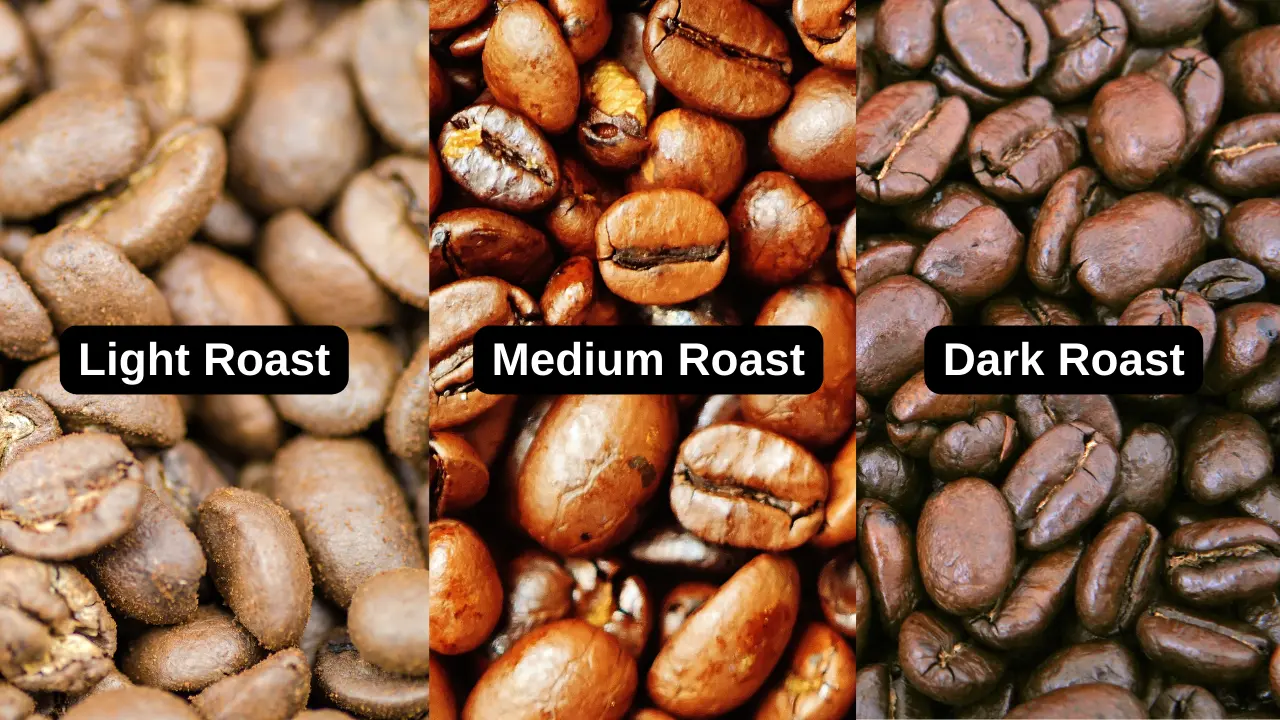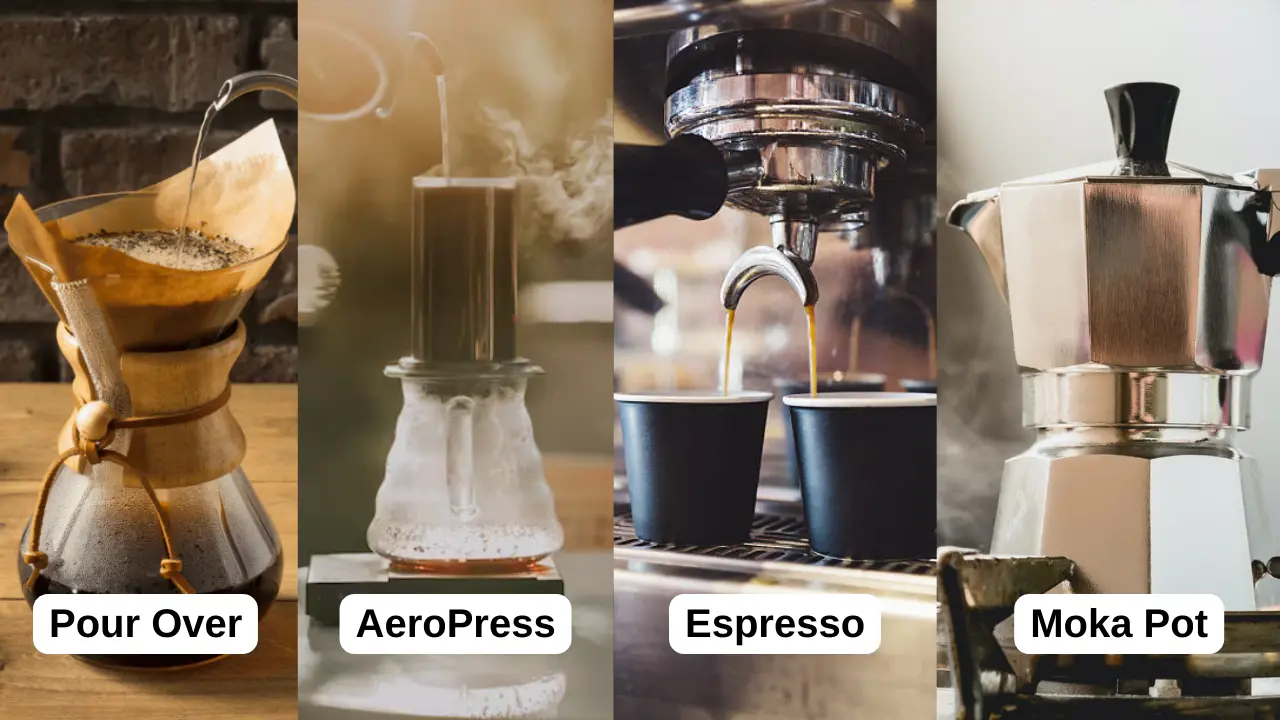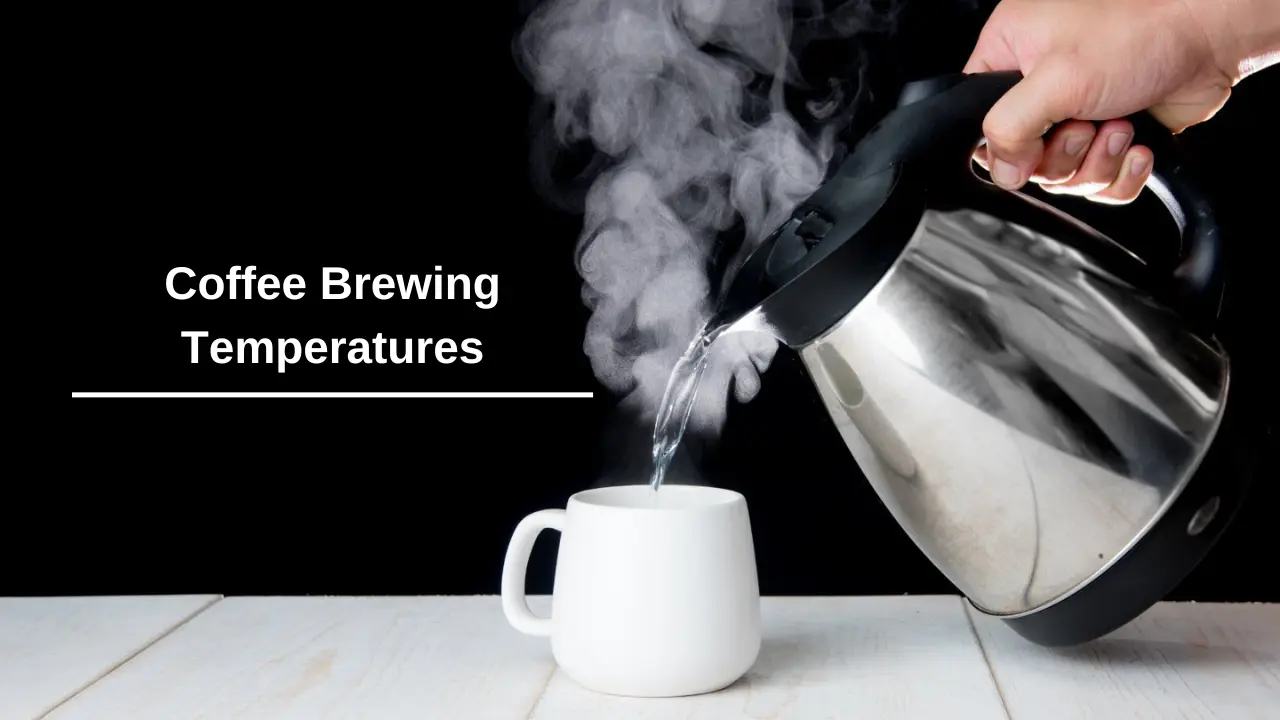Last Updated on August 31, 2023 by Timothy Byron Smith
Coffee enthusiasts often debate the best temperature for brewing coffee. The temperature of your brewing water plays a pivotal role in determining the flavor, aroma, and overall quality of your coffee. In this comprehensive guide, we will explore various theories, practical recommendations, and key considerations related to the ideal coffee brewing temperature.
Also Read: How To Set Delay Brew On Mr. Coffee (A Complete Guide)
Water Temperature for Coffee: Why Does It Matter?
Coffee, at its essence, is approximately 98.75% water. Understanding the significance of water temperature in coffee brewing is crucial to achieving the perfect cup.
Compounds Extraction: When hot water is introduced to coffee grounds, it initiates the extraction of essential compounds. These include acids, oils, aroma, and caffeine. These compounds extract at different rates: acidic and fruity flavors are the first to be extracted, followed by sweetness and balance, and finally bitterness and caffeine.
Under-Extraction and Over-Extraction: Water that is too cold will result in under-extraction, leading to a weak and sour cup of coffee. Conversely, if the water is too hot, over-extraction occurs, resulting in a bitter and unpalatable brew.
Does Hot Water Make Coffee Stronger?
The temperature of the brewing water directly impacts the strength of your coffee.
Stronger Flavor: Hotter water can indeed make your coffee taste stronger. This is because caffeine and bitterness extract more efficiently at higher temperatures.
Balance is Key: While coffee benefits from heat, extreme temperatures can be detrimental. Excessive heat can lead to the decay of coffee, resulting in an overly bitter and excessively caffeinated brew.
What Is The Best Temperature for Coffee Brewing?
The ideal temperature for coffee brewing has been a subject of much discussion among coffee aficionados.
Optimal Range: Many experts recommend a water temperature of around 200°F (93.33°C) for brewing coffee. This temperature is often considered the sweet spot for extracting a balanced profile of flavors from coffee grounds.
Specialty Coffee Association Recommendation: The Specialty Coffee Association suggests a range of 195°F to 205°F (90°C to 96°C) as the ideal temperature range for brewing coffee.
Does the Temperature Depend on the Type of Coffee?
Different types of coffee, such as light roast and dark roast, may benefit from varying brewing temperatures due to differences in their characteristics.

Light Roast Coffee: Light roast coffee beans typically have a denser cell structure and slightly higher caffeine content. Therefore, they tend to benefit from hotter water, often in the range of 206°F to 208°F (96°C to 97.8°C).
Dark Roast Coffee: Dark roast coffee, on the other hand, is less dense and may require a slightly lower brewing temperature to avoid excessive bitterness.
Brewing Method Variations: The choice of brewing method also impacts the ideal water temperature. Different methods, such as pour-over, AeroPress, espresso, and Moka pot, have varying temperature preferences.
Brewing Methods
The choice of brewing method can significantly influence the temperature at which you should brew your coffee.

Pour Over and Cafetiere: For methods like pour-over and cafetiere, aiming for a water temperature in the range of 195°F to 205°F (90°C to 96°C) is generally recommended for optimal extraction.
AeroPress: Surprisingly, the AeroPress can work well at lower temperatures, even as low as 165°F (74°C), allowing for a unique flavor profile.
Related: How to Make Espresso with Aeropress
Espresso: Espresso machines typically prefer an ideal temperature of 195°F to 205°F (90°C to 96°C) for consistently excellent shots.
Moka Pot: The Moka pot, known for its efficiency and sweetness, utilizes just-boiled water for brewing.
Making Temperature Control Easy
Maintaining the right water temperature doesn’t have to be complicated.
Boiling Point: Remember that water boils at 212°F (100°C), which is generally considered too hot for brewing coffee.
Cooling Time: To reach the optimum temperature range, allow your boiled water to cool for about 30 seconds before pouring it over your coffee grounds.
Avoid Bubbling Water: Avoid using water that is still visibly bubbling, as this can lead to uneven extraction.
In conclusion, the best temperature for brewing coffee can vary depending on factors such as coffee type, roast level, and brewing method. Experimentation is key to finding your perfect brew. Ultimately, understanding the nuances of water temperature and its impact on coffee extraction will empower you to consistently enjoy exceptional coffee tailored to your preferences.
People Also Ask
Q: What temperature should you brew coffee at?
Answer: Aim for a water temperature between 195 to 205 degrees Fahrenheit (90 to 96 degrees Celsius) for ideal extraction. Colder water results in under-extracted coffee, while water that’s too hot affects flavor quality.
Q: Is boiling water too hot for coffee?
Answer: The sweet spot for water temperature is around 200 to 205 degrees Fahrenheit (93.33 to 96 degrees Celsius). Boiling water is generally too hot, especially for light roasts, as it can lead to over-extraction and bitterness.
Q: Why is hot water suitable for making coffee?
Answer: Hot water is ideal for making coffee because it extracts more flavor compounds from coffee grounds. However, excessively hot water can lead to bitterness, so finding the right temperature balance is crucial.
Q: Can I use a thermometer to measure water temperature for coffee brewing?
Answer: Yes, using a thermometer is an excellent way to ensure accuracy in water temperature. It allows you to precisely control the temperature within the recommended range for your brewing method and coffee type.
Q: Are there any exceptions to the recommended brewing temperatures?
Answer: Yes, there are exceptions. Some brewing methods, like the AeroPress, work well at lower temperatures, around 165 to 175 degrees Fahrenheit (74 to 80 degrees Celsius). Additionally, specific coffee beans, such as light roasts, may benefit from slightly hotter water. Experimentation is key to finding the right temperature for your preferences.
You may also like:


